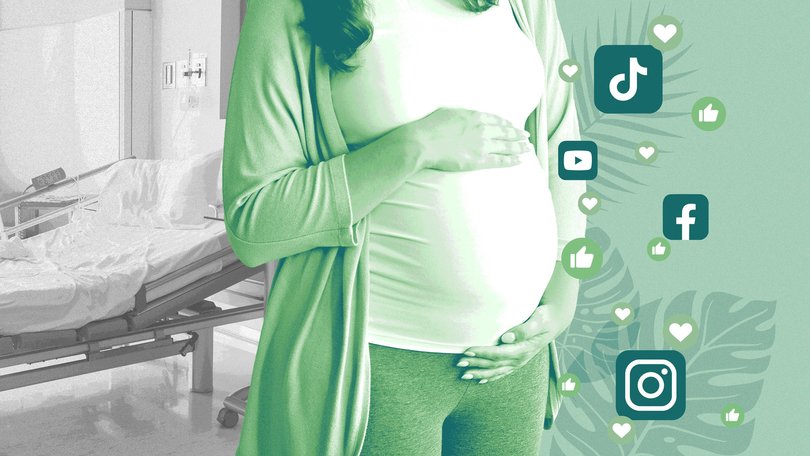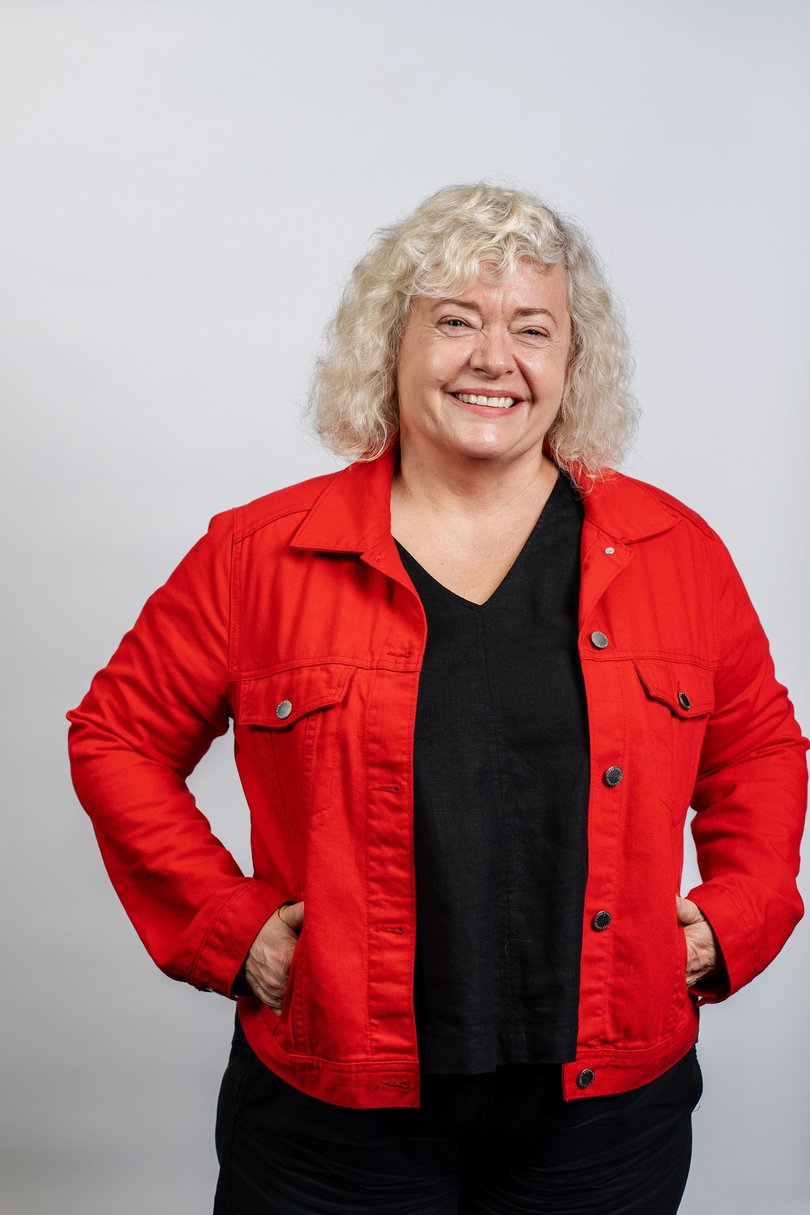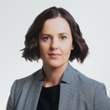Freebirthing: Australia ‘going backwards’ as women reject mainstream maternity care despite recent deaths
Despite a spate of fatal outcomes, Australian women are continuing to give birth without medical support in an alarming new trend that has the nation ‘going backwards’, according to one expert.

A leading obstetrician is warning that Australia is “going backwards” as women continue to give birth without any medical support, despite the high level of risk and a spate of fatal outcomes.
National Association of Obstetricians and Gynaecologists’ president Gino Pecoraro told The Nightly he was alarmed that women continue to “freebirth” in Australia when they have access to tax-payer funded maternity care.
“We can’t, in all conscience, support it, because freebirth is going it alone without anybody with training around childbirth, labour and delivery,” he said.
Sign up to The Nightly's newsletters.
Get the first look at the digital newspaper, curated daily stories and breaking headlines delivered to your inbox.
By continuing you agree to our Terms and Privacy Policy.“Birth is about more than just the woman who’s labouring. There’s also the welfare of the baby and the extended family.
“It’s sad that it’s gotten to the stage where some people feel that they’re better off doing things by themselves when you can go to your local public hospital and have trained obstetricians and midwives look after you under a number of different models for free.”
A freebirth is when a woman decides to give birth without the support of a registered health professional, such as a midwife or doctor.
Freebirths are usually attended by doulas, “birth attendants” or “birth keepers”, who are legally only allowed to provide emotional and physical support during pregnancy and birth.
As they are not registered health professionals, they are not trained to offer clinical advice or care and they cannot respond to medical emergencies if complications arise.
Dr Pecoraro, who has more than three decades of experience in obstetrics, said a safe delivery for both the baby and mother has to be the priority.
“Something’s not right if women are (rejecting) what women in the Third World and elsewhere would just give their eye teeth for, and that’s to have a baby in a safe environment,” he said.
“I believe that we’re going backwards.
“I think the way to look at it is that labour and delivery are really just one day in your life and in your baby’s life.”
Dr Pecoraro, who does not support home birth either, said “every pregnancy is low risk until it isn’t”.
“And in obstetrics, when things go bad, you’ve got three minutes (to save the baby),” he said.
“If a baby’s supply of oxygen to their brain is affected, after a couple of minutes, there isn’t any rush I’m afraid. Think about that.
“As Ariana Grande says, we need to ‘meet in the middle’ and find a model of maternity care for these women (considering freebirth) that will produce an outcome we can all live with.”
Freebirths are distinct from home births, which require the attendance of two midwives who are registered with the Australian Health Practitioner Regulation Agency.
Freebirths are usually attended by unregulated birth workers who may be doulas, massage therapists, or ex-registered midwives who are either ineligible or no longer registered with AHPRA. They sometimes refer to themselves as “sovereign midwives”.
Freebirth carries risks, including potential complications during labour and birth, that may require urgent medical care. The absence of medical help can lead to long term health issues or death.
Hannah Dahlen, a Professor of Midwifery at Western Sydney University, has been studying women’s birth choices for more than a decade.
“For low-risk women, home births attended by competent midwives – who are well networked into a responsive health system – are very safe but when we’re talking about freebirth, it’s a whole different kettle of fish,” she said.
“I think the biggest risk is if you don’t have someone skilled there who can recognise when something is not normal and you need medical help.”
Professor Dahlen said most women who chose to freebirth are highly educated, well-researched and prepared.
“The number one thing driving freebirthing is not some ‘harebrained’ idea of birth as natural,” she said.
“It is due to a past experience in maternity care, where (the mother) has felt dehumanised, disrespected, that their choices have been overruled, (or that) the line of intervention has left them feeling – in some cases – completely destroyed.
“I think we have to stop pointing the finger at these women, stop demonising them, and take a long, hard look at the (medical) system that’s so unsafe to some women that they’re seeking to leave it.”
The academic – who co-authored Birthing Outside the System: The Canary in the Coal Mine – also believes influencers, COVID lockdowns, conspiracy theories and “cultish behaviour” have all contributed to the rise of freebirths in Australia.
“I watched a complete change in the freebirth landscape during and after COVID, and that includes the rise of influencers who often have extreme beliefs,” she said.
“They are often anti-vax and anti any kind of medicalised care. They are often seeding really awful things about midwives being medical interventionists.
“I saw COVID stimulate something in some communities that was quite a radicalised thinking … which sometimes happens when communities are under threat and hunker down. There is that siege mentality.”

There is no data available on the rate of freebirths in Australia but experts believe it is on the rise.
“We actually don’t know the answer to how common freebirths are but we do know that there are some big communities of freebirth that exist like the Northern Rivers and Blue Mountains,” Prof Dahlen said.
“Southern Queensland is a particularly large one and, we found in a study, that there were a very large number of unregulated birth workers there.
“So more in the alternative communities, you’re finding a rise in the numbers of freebirths but we don’t have the data.
“I don’t know a way we would get hold of the data, and now that the community feels under threat, it is even harder.”
An ABC investigation last year found there had been 10 catastrophic incidents linked to freebirths in south east Queensland and northern NSW between 2022 and early 2024.
In seven of those cases, the babies died, while in others, they suffered serious brain injuries and mothers ended up in intensive care.
And in February, a pair of allegedly unqualified “birth keepers” were charged with manslaughter over the death of a baby boy on the NSW mid-north coast.
If you, or someone you know, needs help:
Pregnancy, Birth and Baby (advice from maternal child health nurses) on 1800 882 436
Sands (miscarriage, stillbirth and newborn death support) on 1300 072 637
PANDA (Perinatal Anxiety and Depression Australia) on 1300 726 306
Bears of Hope (infant loss support for families) on 1300 114 673
Lifeline on 13 11 14
MensLine Australia on 1300 789 978
Beyond Blue on 1300 22 46 36

